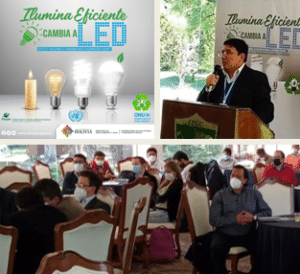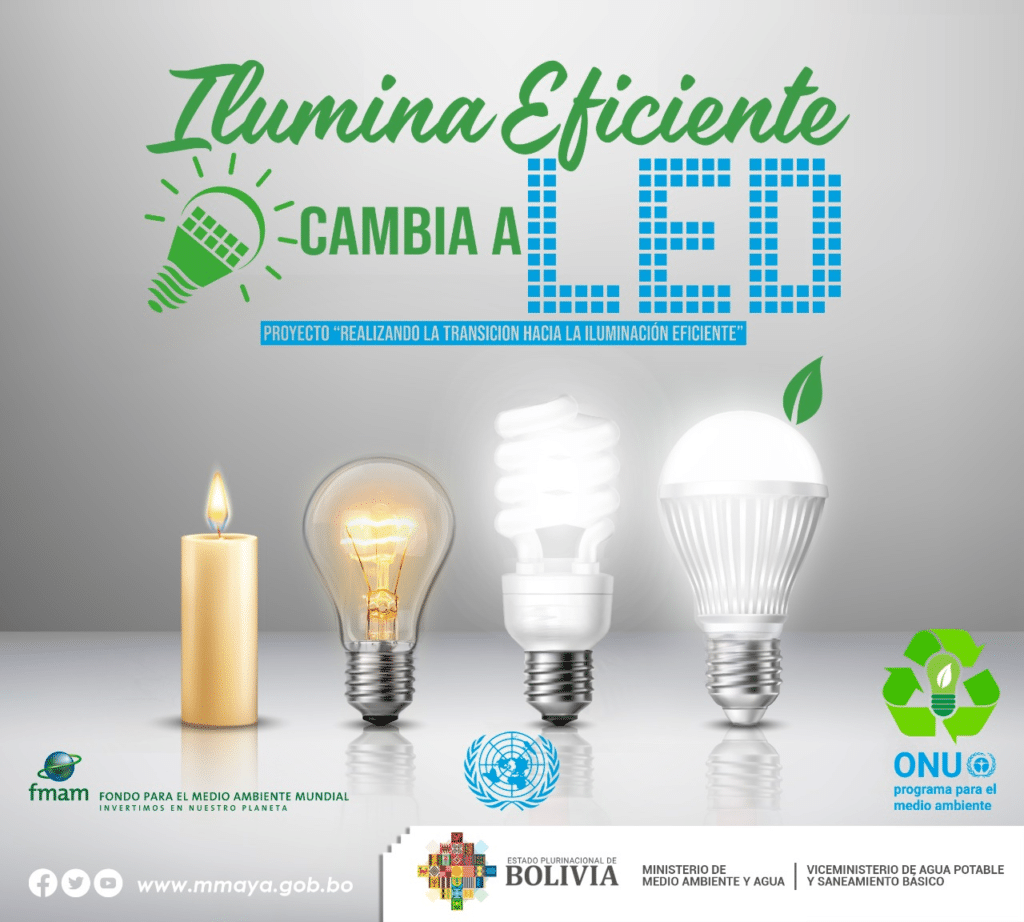
The event represents the formal launch of a project in partnership with the United Nations Environment Programme (UNEP) United for Efficiency (U4E) initiative and both the Ministries of Hydrocarbons and Energy and the Ministry of Environment and Water. With the financial support from the Global Environment Facility and the co-finance of key partners, this US$ 13 million project aims to accelerate the transition to energy-efficient lighting technologies in Bolivia through the development of a national efficient lighting policy and practical innovative interventions on market surveillance and environmentally sound management aspects that will ensure the successful transition to more light emitting diodes (LEDs) and controls.
Fundamental to the success of the project will be the development of a National Efficient Lighting Strategy employing an integrated policy approach to phasing out inefficient lamps. This approach ensures that the key elements necessary to accelerate adoption of energy-efficient lighting –standards and regulations, supporting policies, monitoring, verification and enforcement, financial delivery mechanisms and environmentally sound management and health– are all taken into account, along with the priorities and perspectives of key stakeholders, when implementing the project.
The lighting sector is an area of great importance for the Bolivian Government given the substantial energy, financial and environmental savings that could be released with the development and establishment of minimum energy performance standards (MEPS) as a regulatory tool to increase the average energy performance of lighting products for both the residential and public sectors. By the year 2030, on the basis of Bolivia´s country saving assessment, U4E estimates that the impact of a transition to more energy-efficient lighting will result in annual direct energy savings of 1.5 TWh, cost savings of over $160 million USD and a reduction of 1.1 million tonnes of CO2.
During the workshop, the Ministry of Hydrocarbons and Energies, Lic. Franklin Molina Ortiz, highlighted that, “Only the street/outdoor lighting sector has a major impact on the level of the National energy demand, and with this project it is expected to save between 2 to 3% of the current electricity consumption”.
In addition, the project seeks to support the Government of Bolivia to enact a national plan to collect, recycle and/or responsibly dispose of spent lighting products. This will encompass waste management systems, including the design of a collection and recycling service organization (CRSO), along with awareness raising and communication campaigns to promote collection and recycling of spent lamps. Such regulatory environment and legal frameworks are critical to ensure a sustainable and robust market transformation and play a key role at the demonstration pilot programmes that will take place in three locations in Bolivia so that the more than 900 units of obsolete street lighting planned to be replaced for LEDs and controls are properly disposed of. In this regard, the Vice minister, Eng. José Maria S. Romay Bortolini, stressed that, “The fight against Climate Change is very present in the conception of this project, and thus, Bolivia will not only foster the adoption of new technologies to enable energy savings, but also, preserve and take care of the environment…”
For further information on the project, see the project factsheet or contact Roberto Borjabad at roberto.borjabad@un.org.
